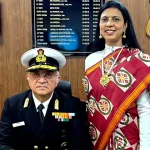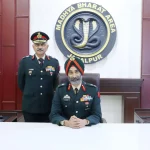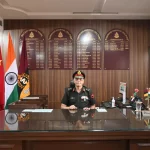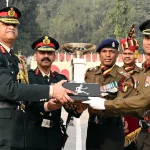NDA 1 2014 was conducted by UPSC on 20th April 2014. Candidates can find the NDA 1 2014 original question papers by UPSC from the links given below. NDA exam is conducted by UPSC twice every year, UPSC will declare the NDA 1 2014 result in Aug 2014. Candidates who are preparing for NDA 2 2014 can check out NDA 1 2014 previous question paper.
NDA 2014 Syllabus
NDA Exam Part A English Syllabus
The question paper in English will be designed to test the candidate’s understanding of English and workman like use of words. The syllabus covers various aspects like : Grammar and usage, vocabulary, comprehension and cohesion in extended text to test the candidate’s proficiency in English.
NDA Exam Part B General Knowledge Syllabus
The question paper on General Knowledge will broadly cover the subjects : Physics, Chemistry, General Science, Social Studies, Geography and Current Events.
The syllabus given below is designed to indicate the scope of these subjects included in this paper.
The topics mentioned are not to be regarded as exhaustive and questions on topics of similar nature not specifically mentioned in the syllabus may also be asked.
Candidate’s answers are expected to show their knowledge and intelligent understanding of the subject.
- Section A – Physics
- Physical Properties and States of Matter, Mass, Weight, Volume, Density and Specific Gravity, Principle of Archimedes, Pressure Barometer.
- Motion of objects, Velocity and Acceleration, Newton’s Laws of Motion, Force and Momentum, Parallelogram of Forces, Stability and Equilibrium of bodies, Gravitation, elementary ideas of work, Power and Energy.
- Effects of Heat, Measurement of temperature and heat, change of State and Latent Heat, Modes of transference of Heat.
- Sound waves and their properties, Simple musical instruments.
- Rectilinear propagation of Light, Reflection and refraction. Spherical mirrors and Lenses. Human Eye.
- Natural and Artificial Magnets, Properties of a Magnet, Earth as a Magnet.
- Static and Current Electricity, conductors and Non-conductors, Ohm’s Law, Simple Electrical Circuits, Heating, Lighting and Magnetic effects of Current, Measurement of Electrical Power, Primary and Secondary Cells, Use of X-Rays.
- General Principles in the working of the following :
- Simple Pendulum, Simple Pulleys, Siphon, Levers, Balloon, Pumps, Hydrometer, Pressure Cooker, Thermos Flask, Gramophone, Telegraphs, Telephone, Periscope, Telescope, Microscope, Mariner’s Compass; Lightening Conductors, Safety Fuses.
- Physical and Chemical changes. Elements, Mixtures and Compounds, Symbols, Formulae and simple Chemical Equations, Law of Chemical Combination (excluding problems). Properties of Air and Water.
- Preparation and Properties of Hydrogen, Oxygen, Nitrogen and Carbondioxide, Oxidation and Reduction.Acids, bases and salts.
- Carbon – different forms
- Fertilizers – Natural and Artificial
- Material used in the preparation of substances like soap, Glass, Ink, Paper, Cement, Paints, Safety Matches, and Gun-Powder.
- Elementary ideas about the Structure of Atom, Atomic, Equivalent and Molecular Weights, Valency.
- Difference between the living and non- living.
- Basis of Life – Cells, Protoplasms and Tissues.
- Growth and Reproduction in Plants and Animals.
- Elementary knowledge of human Body and its important organs.
- Common Epidemics, their causes and prevention.
- Food – Source of Energy for man. Constituents of food, Balanced Diet.
- The Solar System – Meteors and Comets, Eclipses.
- Achievements of Eminent Scientists.
- A broad survey of Indian History, with emphasis on Culture and Civilisation.
- Freedom Movement in India.
- Elementary study of Indian Constitution and Administration.
- Elementary knowledge of Five Year Plans of India.
- Panchayati Raj, Co-operatives and Community Development.
- Bhoodan, Sarvodaya, National Integration and Welfare State, Basic Teachings of Mahatma Gandhi.
- Forces shaping the modern world; Renaissance, Exploration and Discovery; War of American Independence. French Revolution, Industrial Revolution and Russian Revolution. Impact of Science and Technology on Society. Concept of one World, United Nations, Panchsheel, Democracy. Socialism and Communism. Role of India in the present world.
- The Earth, its shape and size. Lattitudes and Longitudes, Concept of time. International Date Line. Movements of Earth and their effects.
- Origin of Earth. Rocks and their classification; Weathering – Mechanical and Chemical, Earthquakes and volcanoes.
- Ocean Currents and Tides
- Atmosphere and its composition; Temperature and Atmospheric Pressure, Planetary Winds, cyclones and Anti-cyclones; Humidity; Condensation and Precipitation; Types of Climate. Major Natural regions of the World.
- Regional Geography of India – Climate, Natural vegetation. Mineral and Power resources; location and distribution of agricultural and industrial activities.
- Important Sea ports and main sea, land and air routes of India. Main items of Imports and Exports of India.
- Knowledge of Important events that have happened in India in the recent years.
- Current important world events.
- Prominent personalities – both Indian and International including those connected with cultural activities and sports.
NDA 1 2014 Previous Question Papers [Original]
Also Read
- NDA 1 2014 Cut Off Marks NDA
- NDA Exam Cut Off Marks 2010 to 2014
- NDA 2 2014 Notification and Exam Date
.png) About SSBCrack Editorial Team
About SSBCrack Editorial TeamThe Editorial Team of SSBCrack consists of a group of Professional writers and aspirants. Their main aim is to provide up to date information regarding SSB Interviews and sharing quality information about Indian Defence to help aspirants. Mail us to join our editorial team now.

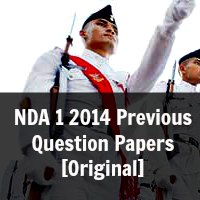

![NDA 1 2014 Previous Question Papers [Original] NDA 1 2014 Previous Question Papers [Original]](https://4.bp.blogspot.com/-SNyd9z3qlRc/U5BbBo6W-OI/AAAAAAAAOlo/Qr4yzL5Z8sI/s1600/nda+1+2014+previous+question+paper.jpg)






